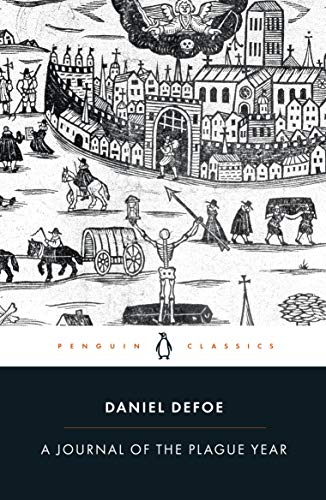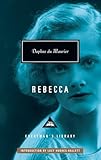

 First, let me say that I know the title and author of every book I read in 2021 because I’ve been faithfully tracking my reading since I was 15. In that long-ago year, I read, among other books, Rebecca, To Kill a Mockingbird, and The Bridge of San Luis Rey. I also read two of Ayn Rand’s books. She seemed appealing to me then, but I matured out of that.
First, let me say that I know the title and author of every book I read in 2021 because I’ve been faithfully tracking my reading since I was 15. In that long-ago year, I read, among other books, Rebecca, To Kill a Mockingbird, and The Bridge of San Luis Rey. I also read two of Ayn Rand’s books. She seemed appealing to me then, but I matured out of that.
Next, I’ll add that much of what I read this year probably doesn’t have wide appeal. I’m working on a new novel. Every time I read for pure enjoyment, that novel barks in my head like a next-door neighbor’s dog left in the yard. Books I’ve thrown over that fence in appeasement are things like The Annotated History of Alabama: And Incidentally of Georgia and Mississippi, from the Earliest Period by Albert J. Pickett and edited, annotated, and introduced by James Pate. Pickett’s book was originally published in 1851 and was so popular it went into its third edition before the year’s end. The version I read was published in 2018. I actually loved it, and it kept the metaphorical barking down for several days, but it’s not for everyone.
Now, as to the body of my pleasure reading, the most depressing thing about recording titles yearly is that, looking back, I often can’t remember exactly what some of those books were about. I don’t think that’s due to age. I noticed this first decades ago. Some books just aren’t memorable. Even for a few months. I’m not going to list any of those here because I have a rule for myself about not saying anything at all about the work of a living author if I can’t say something nice. That’s my mother in my head. Sometimes she competes with the metaphorical dog.
So, what stands out in this year of my reading?
The Journal of the Plague Year by Daniel Defoe. This was a gift from friends who had social-distanced with me around a heater in my airy garage in the dead of the Covid winter. I think we all probably had those kinds of experiences and read these kinds of books as a result.
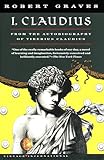 I, Claudius by Robert Graves. I’d been meaning to read this book since 1976 when Derek Jacobi so brilliantly played that emperor in the Masterpiece Theater series. And it’s a good reminder that we haven’t devolved from a Golden Age; we’ve actually become more civilized. As hard as that is to imagine.
I, Claudius by Robert Graves. I’d been meaning to read this book since 1976 when Derek Jacobi so brilliantly played that emperor in the Masterpiece Theater series. And it’s a good reminder that we haven’t devolved from a Golden Age; we’ve actually become more civilized. As hard as that is to imagine.
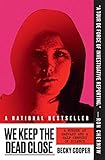 We Keep the Dead Close by Becky Cooper. I love true crime, anthropology, and graduate school intrigue. This book rang all three of those chimes.
We Keep the Dead Close by Becky Cooper. I love true crime, anthropology, and graduate school intrigue. This book rang all three of those chimes.
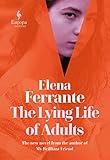 The Lying Life of Adults by Elena Ferrante. I was embarrassed that I didn’t just salivate over My Brilliant Friend like so many of my author friends did. So I decided to give Ferrante another chance. I deeply enjoyed this book. I liked the themes, the complexity, and the depth of characterization.
The Lying Life of Adults by Elena Ferrante. I was embarrassed that I didn’t just salivate over My Brilliant Friend like so many of my author friends did. So I decided to give Ferrante another chance. I deeply enjoyed this book. I liked the themes, the complexity, and the depth of characterization.
 The Good Girls: An Ordinary Killing by Sonia Faleiro. This is another true crime. It’s set in India and I found it culturally fascinating. And, really, any book with the words “ordinary” and “killing” next to each other in a title should be interesting.
The Good Girls: An Ordinary Killing by Sonia Faleiro. This is another true crime. It’s set in India and I found it culturally fascinating. And, really, any book with the words “ordinary” and “killing” next to each other in a title should be interesting.
 The Unredeemed Captive by John Demos. This comes from a genre of books (captive stories) that used to be wildly popular, but which most of us don’t read any more. It starts with a Native American raid on Deerfield, Mass., in 1704 in which several Puritans are abducted. Most of those whites returned home, but one didn’t. In reality, thousands of these abductions went on both ways during the European invasion of our land, and some of those captives settled into happy lives and didn’t want to go back to their original families.
The Unredeemed Captive by John Demos. This comes from a genre of books (captive stories) that used to be wildly popular, but which most of us don’t read any more. It starts with a Native American raid on Deerfield, Mass., in 1704 in which several Puritans are abducted. Most of those whites returned home, but one didn’t. In reality, thousands of these abductions went on both ways during the European invasion of our land, and some of those captives settled into happy lives and didn’t want to go back to their original families.
 Knights of Spain, Warriors of the Sun by Charles Hudson is about de Soto’s rampage through the southeast. This book is the result of a staggering amount of work over a long period of time and is the definitive work on de Soto and his atrocities. I found it gripping.
Knights of Spain, Warriors of the Sun by Charles Hudson is about de Soto’s rampage through the southeast. This book is the result of a staggering amount of work over a long period of time and is the definitive work on de Soto and his atrocities. I found it gripping.
 The Plot by Jean Hanff Korelitz. This book is currently a bestseller and is a lot of fun. Particularly for anyone in the novel-writing profession.
The Plot by Jean Hanff Korelitz. This book is currently a bestseller and is a lot of fun. Particularly for anyone in the novel-writing profession.
 The Sentence by Louise Erdrich has just come out as I’m writing this. But I read an ARC in preparation for interviewing Erdrich for the Pen/Faulkner Foundation. I thought it was a great read. It works on several levels.
The Sentence by Louise Erdrich has just come out as I’m writing this. But I read an ARC in preparation for interviewing Erdrich for the Pen/Faulkner Foundation. I thought it was a great read. It works on several levels.
More from A Year in Reading 2021 (opens in a new tab)
Don’t miss: A Year in Reading 2020, 2019, 2018, 2017, 2016, 2015, 2014, 2013, 2012, 2011, 2010, 2009, 2008, 2007, 2006, 2005
